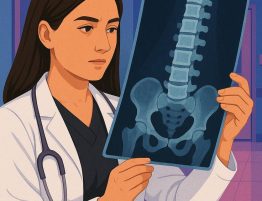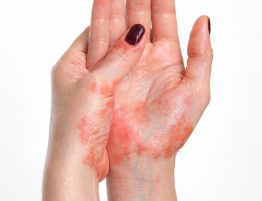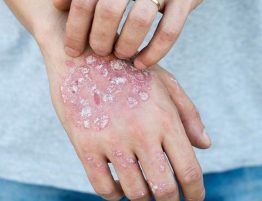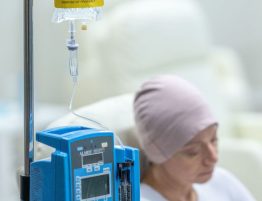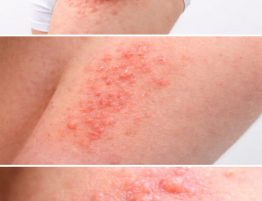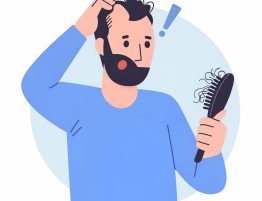
Chronic obstructive pulmonary disease (COPD) is a long-term lung condition that makes it hard for the patient to breath. Emphysema and chronic bronchitis are the two most common conditions that contribute to COPD.
These two conditions usually occur together and can vary in severity among individuals with COPD.
Types of COPD
Emphysema – this results from damage to the air sacs (alveoli) that destroys the walls inside them and cause them to merge into one giant air sac. It can’t absorb oxygen as well, so the patient gets less oxygen in their blood.
Chronic Bronchitis – if a patient has coughing, shortness of breath, and mucus that lingers at least 3 months for 2 years in a row, they have chronic bronchitis.
Refractory Asthma – this type may also be called nonreversible. It doesn’t respond to normal asthma medications.
Symptoms
COPD symptoms often don’t appear until significant lung damage has occurred, and they usually worsen over time, particularly if smoking exposure continues.
Signs and symptoms of COPD may include;
- Shortness of breath, especially during physical activities
- Wheezing
- Chest tightness
- A chronic cough that may produce mucus (sputum) that may be clear, white, yellow or greenish
- Frequent respiratory infections
- Lack of energy
- Unintended weight loss (in later stages)
- Swelling in ankles, feet or legs
Treatments
Many people with COP have mild forms of the disease for which little therapy is needed other than smoking cessation. Even for more advanced stages of disease, effective therapy is available that can control symptoms, slow progression, reduce the risk of complications and exacerbations, and improve the ability to lead to an active life.
Medications – several kinds of medications are used to treat the symptoms and complications of COPD. patients may take some medication on a regular basis and others as needed.
- Bronchodilators – are medications that usually come in inhalers – they relax the muscles around the airways.
- Inhaled Steroids – inhaled corticosteroid medications can reduce airway inflammation and help prevent exacerbations.
- Combination inhalers – Some medications combine bronchodilators and inhaled steroids.
- Oral Steroids – For people who experience periods when their COPD becomes more severe, called moderate or severe acute exacerbation, short courses (for example, five days) of oral corticosteroids may prevent further worsening of COPD.
- Phosphodiesterase-4 inhibitors – a medication approved for people with severe COPD and symptoms of chronic bronchitis is roflumilast (Daliresp), a phosphodiesterase-4 inhibitor.
- Theophylline – When other treatment has been ineffective or if cost is a factor, theophylline (Elixophyllin, Theo-24, Theochron), a less expensive medication, may help improve breathing and prevent episodes of worsening COPD.
- Antibiotics – Antibiotics help treat episodes of worsening COPD, but they aren’t generally recommended for prevention. Some studies show that certain antibiotics, such as azithromycin (Zithromax), prevent episodes of worsening COPD, but side effects and antibiotic resistance may limit their use.
Lung therapies – doctors often use these additional therapies for people with moderate to severe COPD;
- Oxygen therapy – If there isn’t enough oxygen in your blood, you may need supplemental oxygen.
- Pulmonary Rehabilitation Program – These programs generally combine education, exercise training, nutrition advice and counseling.
Surgery – Surgery is an option for some people with some forms of severe emphysema who aren’t helped sufficiently by medications alone. Surgical options include:
- Lung Volume Reduction Surgery – In this surgery, your surgeon removes small wedges of damaged lung tissue from the upper lungs.
- Lung Transplant – Lung transplantation may be an option for certain people who meet specific criteria. Transplantation can improve your ability to breathe and to be active.
- Bullectomy – Large air spaces (bullae) form in the lungs when the walls of the air sacs (alveoli) are destroyed. These bullae can become very large and cause breathing problems. In a bullectomy, doctors remove bullae from the lungs to help improve air flow.
What We Offer
We at Almurshidi Medical Tourism will find the best doctors to cater to your needs. We are partnered with a wide network of hospitals and clinics that provide top quality medical experience.
We provide free medical estimates, make medical appointments, and provide several medical opinions if needed at no cost.
Contact Us
For more information contact us at +66822004040 or via WhatsApp

